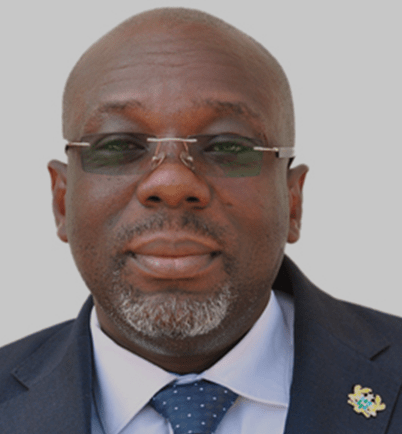By Kofi Anokye OWUSU-DARKO
Aspire 24 is a bold and forward-thinking initiative to be introduced by the NDC, designed to reshape Ghana’s socio-economic landscape by focusing on several key thematic areas: Mindset and Work Ethic Transformation, Digital Intelligence Skills Development, Multilingual Competence Development, Vocational and Technical Skills for Key Sectors, Workforce Skills Upscaling, and Business Support Services.
These strategic pillars aim to equip the workforce with the skills and growth mindset necessary to compete and thrive in a fast-changing global economy.
A critical component of Aspire 24 is the Mindset and Work Ethic Transformation Framework, which seeks to reset mindsets and drive excellence within Ghana’s workforce by instilling a culture of national pride, responsibility, accountability, ethical behaviour and professionalism across all sectors. This framework emphasises the need for a national mindset shift to catalyse growth and productivity, fostering qualities essential for socio-economic resilience and national pride.
Aspire 24 envisions a disciplined, adaptable workforce committed to continuous improvement—qualities essential for Ghana’s transition to a 24-hour economy that drives national prosperity, sustained economic growth, and global competitiveness. By fostering these values, Aspire 24 positions Ghana not only as a leader in national growth but as a prime destination for international investment and a competitive player in the global market.
The key goals of this transformation are to:
- Improve Workplace Ethics: Aspire 24 aims to foster values such as punctuality, accountability, and professionalism, ensuring that all sectors adhere to high standards of integrity and responsibility.
- Promote Continuous Learning and Adaptability: The initiative emphasises the importance of continuous learning and adaptability to new technologies, ensuring the workforce remains agile and prepared for digital advancements in the global economy.
- Foster a Growth Mindset and Innovation: Aspire 24 seeks to cultivate a growth mindset and promote innovation across sectors, aligning productivity with ethical standards to equip Ghana’s workforce for sustainable growth and global competitiveness.
- Patriotism: Aspire 24 seeks to instil a deep sense of national pride, motivating Ghanaians to contribute to the nation’s progress.
- Can-Do Spirit: Cultivating a proactive mindset, encouraging Ghanaians to approach challenges with resilience and determination.
This article presents a recommended approach for the actualisation of the Mindset and Work Ethic Transformation pillar within Aspire 24. It proposes a strategic approach, focusing on key elements such as a phased pilot rollout, technology-driven learning tools, and multi-stakeholder engagement.
The article outlines how critical partnerships, AI-driven assessments, and data-driven monitoring can foster a culture of responsibility, excellence, and accountability across sectors. Additionally, it addresses challenges such as workforce adaptability and behavioural shifts, presenting solutions for preparing Ghana’s workforce for a 24-hour economy. Ultimately, this article offers a roadmap to instil the mindset necessary for sustainable socio-economic growth and to position Ghana as a competitive player in the global market.
To achieve these transformative goals, Aspire 24 begins with a fundamental shift in mindset, focusing on creating a workforce that is both ethically driven and prepared for continuous improvement.
WHY MINDSET RESETTING?
Resetting the national mindset aligns with the broader NDC vision of “Resetting Ghana,” which calls for a cultural and behavioural shift within the workforce, essential for achieving the goals of job creation, accountability, and prosperity. By resetting mindsets and driving excellence across all sectors, Aspire 24 aims to equip Ghana for sustainable growth and global competitiveness.
At its core, the mindset reset focuses on transforming the attitudes, beliefs, and behaviours of both individuals and institutions. It emphasises the need for Ghanaians to adopt a mindset of responsibility, innovation, and adaptability to succeed in an ever-evolving global economy.
Aspire 24 also aligns Ghanaian workers with the values demanded by global markets. This transformation will ensure that Ghana’s workforce is prepared to meet international standards, making the country an attractive partner in global supply chains and a valuable contributor to global industries.
WHY THE NEED TO DRIVE EXCELLENCE?
Excellence refers to the pursuit of the highest standards in all areas of work, whether in the public sector, private businesses, or individual roles. Embedding a culture of excellence ensures that efforts—particularly in job creation, accountability, and economic productivity—not only meet expectations but exceed them.
By fostering a culture of professionalism and responsibility, Aspire 24 is to prepare the workforce for emerging job opportunities while promoting accountability in governance and businesses. This pursuit of excellence is essential to the manifesto’s broader goals of prosperity, as it will drive sustained growth, build a strong and competitive economy, and elevate Ghana’s standing in the global market.
As Aspire 24 drives excellence across all sectors, the outcomes is to be seen in the areas of productivity in jobs, accountability, and prosperity for both the workforce and enterprises—each of which plays a crucial role in the nation’s socio-economic transformation.
- Jobs
Mindset transformation is crucial to preparing the workforce for the job opportunities envisioned in Ghana’s transition to a 24-hour economy. By encouraging professionalism, continuous improvement, and the adoption of digital skills, Aspire 24 is to ensure that workers are ready to embrace new roles and thrive in emerging sectors, contributing to the creation of sustainable jobs. - Accountability
Resetting the mindset also means fostering a culture of accountability, where individuals, businesses, and institutions take responsibility for their actions and decisions. Accountability is vital for improving governance and ensuring alignment with the NDCs manifesto goals of transparency and trust. It drives excellence by ensuring that the pursuit of high standards is both sustained and measurable. - Prosperity
The combination of mindset transformation and a focus on excellence is to lead to national prosperity at both the workforce and enterprise level. As workers and organizations adopt a growth-oriented mindset and hold themselves to high standards of accountability and productivity, Ghana’s economy will thrive. This is to create more opportunities, elevate the nation’s standing in the global market, and contribute to long-term prosperity.
For this transformation to take root, it will require the collaboration of key stakeholders who can shape the values and work ethic across the nation.
KEY STAKEHOLDERS IN MINDSET TRANSFORMATION
Aspire 24’s success will depend on the active participation of diverse stakeholders in the mindset transformation. These groups will play critical roles in supporting the rollout and integration of the initiative across sectors.
Ongoing dialogue with stakeholders, especially businesses and educational institutions, will support continuous improvement and alignment with Aspire 24’s evolving goals, ensuring the initiative adapts to meet emerging needs and opportunities. The following will be key stakeholders in this transformation process:
· General Public
There is the need to foster a sense of national pride, collective responsibility, and a strong work ethic across all regions for Ghana’s socio-economic progress. Every citizen must recognise their individual contribution to the country’s growth. By instilling a mindset of shared responsibility and encouraging active participation in national development, Aspire 24 will then be able to create a unified sense of purpose that drives excellence.
· Workforce
Aspire 24 must focus on both public and private sector employees, encouraging them to take personal responsibility for their roles in fostering productivity and excellence. By promoting a culture of professionalism, accountability, and continuous improvement, workers will then be empowered to embrace the growth mindset shift that is essential for driving national growth.
· Educational Institutions
Targeting universities, vocational schools, and technical colleges is crucial for shaping the mindset of future workers. Aspire 24 must collaborate with educational institutions to ensure that the next generation is equipped with not only technical and vocational skills but also the right attitudes and work ethic needed for success in the evolving global economy. This will help lay the foundation for a workforce that values responsibility and innovation.
· Businesses and Entrepreneurs
Engaging SMEs, startups, and other business entities is key to promoting innovation, ethical practices, and operational efficiency. Aspire 24 needs to encourage businesses to adopt a mindset of continuous learning and adaptability, while holding themselves to high standards of accountability. This will enable them to thrive in a competitive environment and contribute to national prosperity.
· Community Leaders and Influencers
Local influencers, community leaders, and traditional authorities have a unique role to play in spreading the message of mindset change at the grassroots level. By leveraging their influence and authority, Aspire 24 must engage these key figures to foster a culture of responsibility, discipline, and excellence in their communities, ensuring that the message of mindset transformation reaches every corner of the country.
To fully engage these stakeholders and support Aspire 24’s goals, strategic partnerships are essential for building capacity and ensuring sustained impact.
STRATEGIC PARTNERSHIPS
To ensure the successful implementation of the Mindset and Work Ethic Transformation Framework, Aspire 24 will need to actively engage various partners and stakeholders. These partnerships will provide both technical and financial support, as well as institutional backing, to make the initiative impactful and sustainable across sectors.
· Organized Labour
Aspire 24 will engage with Organized Labour, including trade unions and workers’ associations, to ensure that the workforce embraces the principles of responsibility, accountability, and excellence. By collaborating with these groups, Aspire 24 will promote the adoption of ethical workplace practices, foster professional development, and support workers in adapting to the changes required to succeed in a 24-hour economy.
· Public-Private Partnerships (PPP)
Aspire 24 will have to collaborate with businesses, NGOs, and academic institutions to co-develop and sponsor initiatives that promote ethical workplace practices and excellence. These partnerships will help drive innovation, provide resources, and encourage widespread adoption of the mindset transformation framework within the workforce.
· Government and Regulatory Bodies
A key component of the partnership strategy will involve working closely with various ministries and regulatory bodies, such as the Ministries responsible for Employment, Communications and Digital Transformation.
The National Employment Coordination Committee (NECC), which will be responsible for overseeing all job creation initiatives and ensuring that they are implemented effectively, will be essential in aligning government efforts, ensuring that Aspire 24’s initiatives are cohesively integrated across sectors. These entities will play a critical role in the nationwide rollout, providing the endorsement and coordination needed to ensure the initiatives reach and benefit all sectors of the economy.
· International Organizations
There will be the need to also seek technical and financial support from international organizations such as the International Labour Organization (ILO) and the United Nations Development Programme (UNDP). These organizations will provide capacity-building programmes that help develop the skills and competencies necessary for workforce transformation, supporting Aspire 24’s long-term goals of ethical behaviour and workplace excellence.
Additionally, partnerships with international organizations like the ILO and UNDP are crucial not just for implementation but for connecting Ghana’s workforce to global markets. By aligning with international standards, Aspire 24 will ensure that Ghana’s workforce remains competitive internationally, attracting multinational companies and contributing to Ghana’s reputation as a skilled labour destination.
With a strong foundation of partnerships in place, Aspire 24’s implementation strategy can then proceed in a phased and impactful manner.
IMPLEMENTATION STRATEGY
The success of the Mindset and Work Ethic Transformation Framework relies on a well-coordinated approach that engages all key stakeholders and leverages a variety of strategies to ensure long-lasting change. Aspire 24 will use the following key strategies to implement this transformative framework:
· Pilot Programme and Scaling
The rollout of the framework should begin with a pilot phase, targeting a few regions or sectors to test the effectiveness of the messages and strategies. This pilot will allow Aspire 24 to collect feedback, assess the initial impact, and identify areas for improvement.
Based on the insights gained from the pilot, the programme will adjust its strategies before moving to a nationwide rollout. The full-scale campaign will then be scaled across all sectors and regions of the country, ensuring that the programme has the broadest possible reach while maintaining its effectiveness.
· Technology-Driven Approach
Aspire 24 will have to integrate cutting-edge technology to ensure that the Mindset and Work Ethic Transformation reaches a wide audience, engages participants continuously, and tracks progress in a data-driven manner. This approach includes:
- E-learning Platforms: Aspire 24 should develop mobile-friendly e-learning platforms that offer mindset and work ethics training modules accessible anytime, providing flexibility for participants to engage at their convenience, ensuring wider reach and sustained learning.
- AI-Driven Assessment Tools: AI-driven tools will need to be used to assess participants’ progress on mindset changes and work ethic improvements. These tools will provide personalised feedback based on performance metrics, helping learners adjust and continuously improve.
iii. Social Media Campaigns: Aspire 24 will need to leverage social media influencers to promote key messages, particularly targeting younger audiences to increase visibility and engagement in the mindset transformation process.
- Data-Driven Monitoring: Aspire 24 should use digital tools to track participant engagement and evaluate campaign effectiveness. Data-driven monitoring will allow Aspire 24 to identify improvement areas and tailor content accordingly.
Ultimately, the use of e-learning platforms, AI-driven assessments, and accountability measures is to equip Ghana’s workforce with skills that are directly applicable to global industries. By emphasising excellence and continuous improvement, Ghana will be cultivating a workforce that is not only competitive domestically but respected internationally, creating a foundation for partnerships with global enterprises.
· Nationwide Campaigns
Aspire 24 will have to be launched with a series of nationwide campaigns aimed at promoting the values of responsibility, accountability, and professionalism. These campaigns will then utilise mass media, including television, radio, and social media, to spread the message across the country. Special attention will have to be given to engaging the youth through digital platforms, where they can be inspired to embrace a new growth mindset that aligns with the goals of a 24-hour economy.
· Educational Reforms and Partnerships
Aspire 24 will need to collaborate with educational institutions, such as universities, vocational schools, and technical colleges, to integrate the principles of work ethic transformation into their curricula.
Through partnerships with the Ministry to be responsible for Education and private educational entities, the programme will then have to ensure that students are not only equipped with technical and digital skills but also with the right attitudes for success in the workplace.
Ethical leadership programmes and workplace readiness training will form part of this curriculum shift, ensuring that graduates enter the workforce with a growth mindset geared toward excellence and accountability.
· Workplace Transformation Initiatives
Aspire 24 is to work closely with businesses in both the public and private sectors to promote the adoption of workplace transformation initiatives. These should focus on building ethical work cultures and encouraging continuous improvement within organizations.
Tools such as workplace training in accountability and professional conduct, as well as performance monitoring systems, will have to be implemented to measure the impact of mindset change. This will ensure that excellence becomes the standard across all sectors of the economy.
· Leadership and Community Engagement
Engaging community leaders, traditional authorities, and local influencers should be a cornerstone of the implementation strategy. Aspire 24 will have to work with these leaders to host community dialogues, leadership workshops, and public forums that reinforce the importance of a strong work ethic and responsibility. Leaders will then be empowered to champion these changes at the local level, helping to ensure that the growth mindset shift is embraced at the grassroots.
· Monitoring and Evaluation
A robust monitoring and evaluation (M&E) framework will now have to be put in place to track the progress of the Mindset and Work Ethic Transformation initiatives. Regular assessments and data-driven evaluations will have to be implemented to measure how well mindset changes are being adopted across various sectors.
This system will allow for continuous feedback, ensuring that programmes can be adjusted and improved as needed to maximise their impact. Here again the NECC will have to play a pivotal role.
CONCLUSION
Aspire 24’s Mindset and Work Ethic Transformation Framework is a pivotal component of the NDC’s “Resetting Ghana” manifesto, designed to drive socio-economic growth and position the country for long-term prosperity. By fostering a culture of responsibility, accountability, and excellence, Aspire 24 aims to equip Ghana’s workforce with the attitudes and behaviours necessary to thrive in a competitive global economy.
This transformation is essential for Ghana’s transition to a 24-hour economy, supporting sustainable job creation, enhancing governance, and elevating the nation’s standing in the global market.
By embedding a mindset of excellence and continuous improvement, Aspire 24 lays the foundation for sustained national growth and global competitiveness. This initiative seeks to cultivate a workforce that is not only competitive domestically but also respected internationally.
As Ghana’s role in global supply chains strengthens, particularly in technology and manufacturing, Aspire 24’s focus on global standards will enhance economic resilience and secure the nation’s position in the global marketplace.
The success of this framework will however depend on active collaboration with government bodies, private enterprises, organized labour, educational institutions, and international partners. Through these partnerships and strategic workplace initiatives, Aspire 24 will ensure that Ghana’s workforce can adapt to emerging technologies and drive productivity to new heights.
This transformation will position Ghana as an attractive partner for multinational companies, fostering global partnerships and establishing its reputation as a skilled labour destination. With all stakeholders engaged, Ghana will be well-positioned to realise its full potential, ensuring a brighter, more prosperous future for all.
The author holds a DBA in Leadership & Organizational Change, is a Certified Management Consultant & Organization Development Practitioner. (Contact: [email protected]) (Blog: Kofianokye.blogspot.com; Kofidarko2.blogspot.com)










